Idnetical resistor each of resistance r are connected as shown in figure. Calculate equivalent resistance between A and E.

Let the potentials of nodes A and B be V and O, respecitvely,
 ,
, 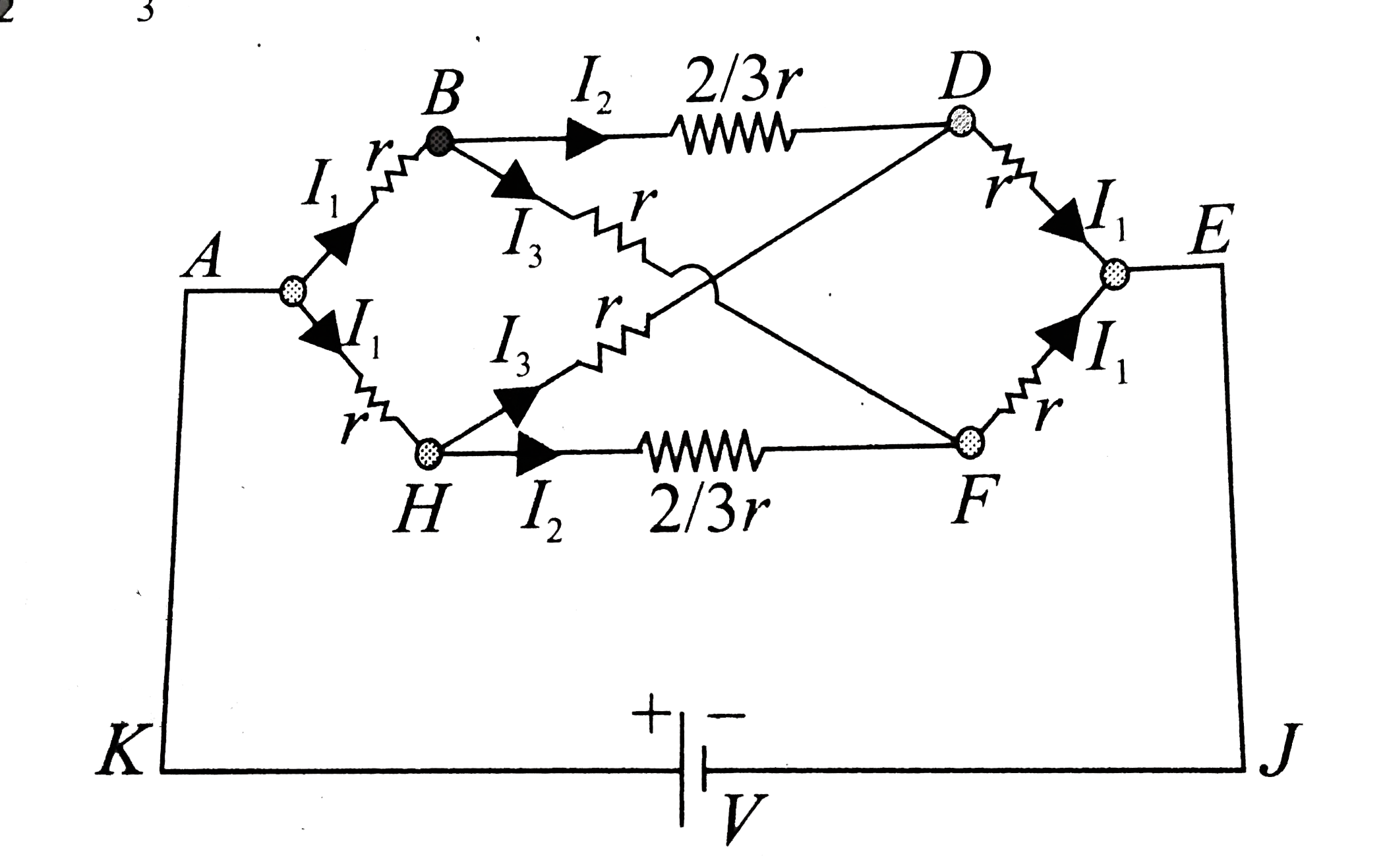
from symmetry, it is clear that the current in the resistance
AB and AH will be same. Similaryl , the current in resistances
DE and FE will be same hence potential differnce across
these resistances will be same.
Let the potentials of point D and F be x, then the potentials
of nodes B and H will be (V - x). the potential difference
across the resistances BH and DF is zero. the net resistacne
can be ginven as RO(eq)=V/I
Nodal equation at A is
1=(V−(V−x)r+V−(V−x)r)=2xr
Nodal equation at B is
(V−x)−Vr=(V−x)−x(2/3r)+(V−x)−xr
From (i) and (ii),
I=2r(512V)orVI=6Ir=Req
Method:2 if the battery of emf V is connected across A and E, cirucit beomes as shown in fig there fore currents in AB, AH, DE, and FE are identical (I_1 say)
Current is BD and FE are indential to each other (I2,say).
Currents i BF and HD are idnetical to each other (I3say) no
currents flows through BH and DF hecen currents throgh
differents resistors will be as shown in fign applying Kirchhoff's voltage law at junction B, we get
I1=I2+I3(i) <br>Apply∈gKirchhoff'svo<a≥lawonmeshBFHB,we≥t<br>I_3r - (2)/(3)r I_2 = 0 or 3I_3 = 2I_2 (ii)<br>Nowappl∈gKirchhoff'svo<a≥lawonmeshAHFEJKA,<br>we≥t<br>I_1r +I_2((2)/(3)r) + I_1r- V = 0 (iii)<br>FromEqs.(i)and(ii)we≥tI_2 = 1.5I_3 and I_1 = 2.5I_3<br>Substitut∈gthesevalues∈Eqs.(iii)we≥t,<br>6I_3r= V or (V)/(I_3) = 6r<br>TotalcurrentdrawnombaeryisI = 2I_1 =5I_3Therefore,<br>≡a≤ntresistanceis<br>(V)/(5I_3) = (1)/(5)xx6r = 1.2r
Topper's Solved these Questions
- BOOK - CENGAGE PHYSICS ENGLISHCHAPTER - ELECTRIC CURRENT AND CIRCUITEXERCISE - Exercise 5.128videos
ELECTRIC CURRENT AND CIRCUIT
- BOOK - CENGAGE PHYSICS ENGLISHCHAPTER - ELECTRIC CURRENT AND CIRCUITEXERCISE - Exercise 5.250videos
ELECTRIC CURRENT AND CIRCUIT
- BOOK - CENGAGE PHYSICS ENGLISHCHAPTER - ELECTRIC CURRENT AND CIRCUITEXERCISE - Interger8videos
ELECTRIC CURRENT AND CIRCUIT
- BOOK - CENGAGE PHYSICS ENGLISHCHAPTER - ELECTRIC CURRENT & CIRCUITSEXERCISE - Kirchhoff s law and simple circuits15videos
ELECTRIC CURRENT & CIRCUITS
- BOOK - CENGAGE PHYSICS ENGLISHCHAPTER - ELECTRIC FLUX AND GAUSS LAWEXERCISE - MCQ s38videos
ELECTRIC FLUX AND GAUSS LAW
Similar Questions
Seven resistance are connected as shown in the firgure. The equivalent resistance between A and B is
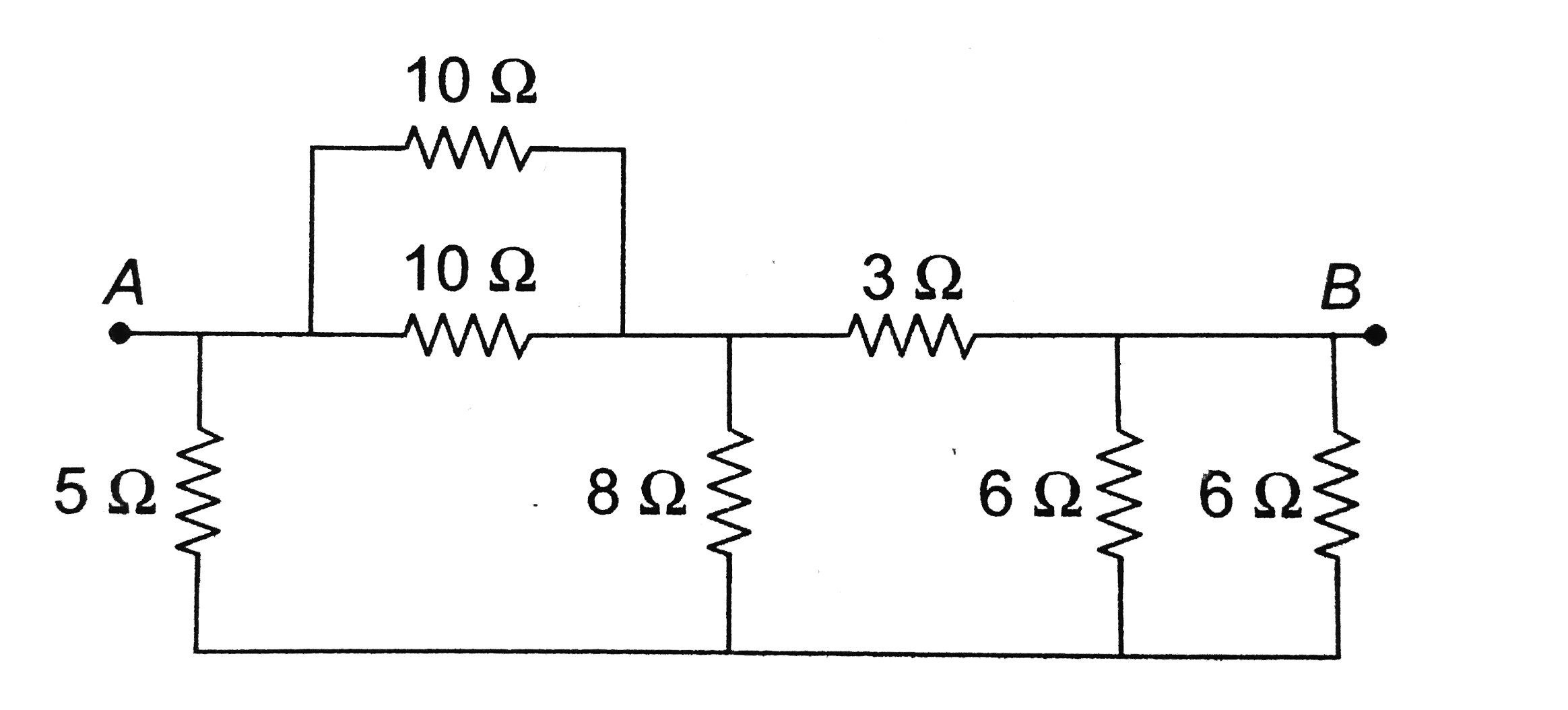 View Solution
View SolutionInside a supeerconducting ring, six identical resistors each of resistance R are connected as shown in figure. The equivalent resistances.
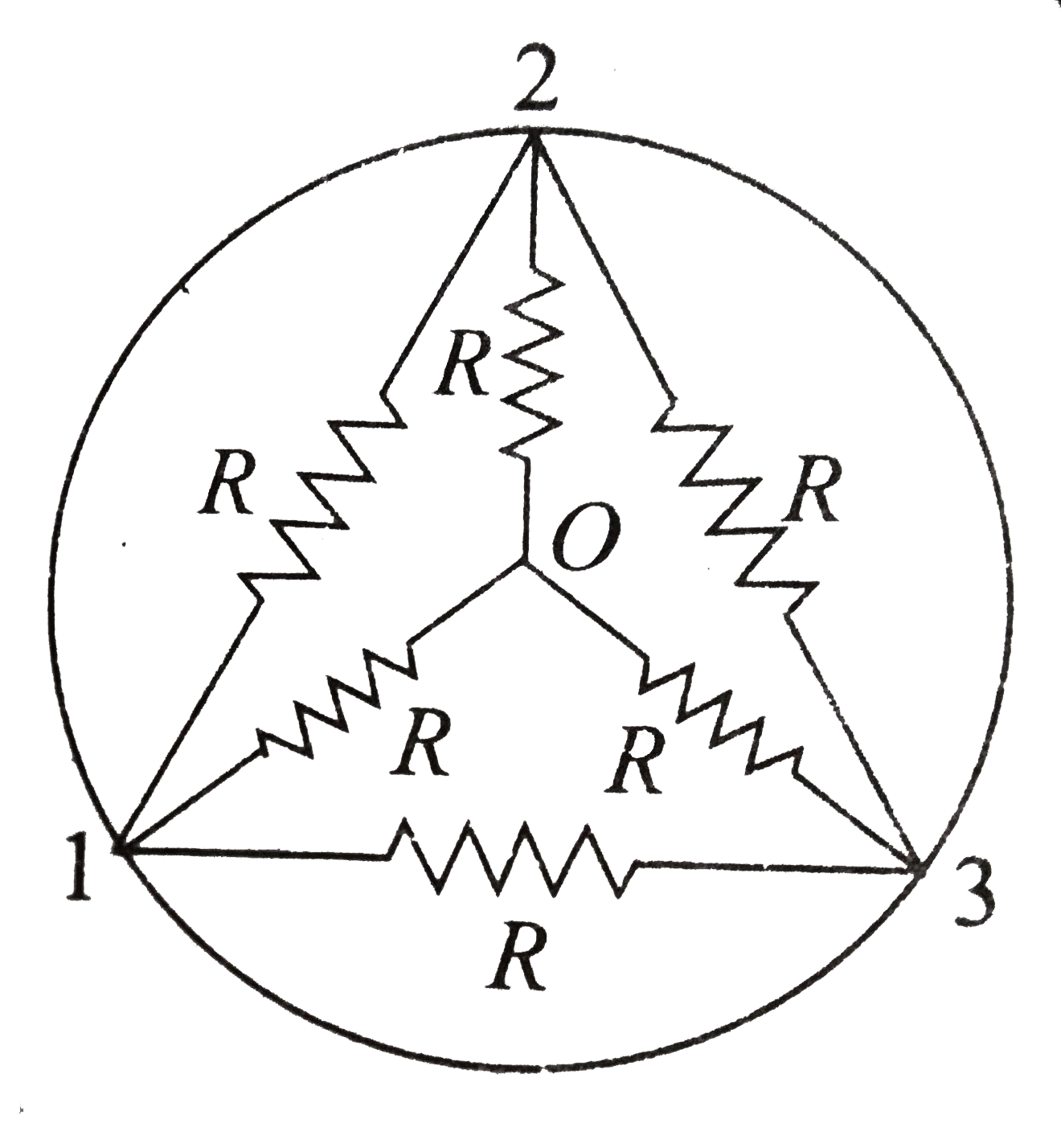 View Solution
View SolutionFive resistance are connected as shown in the figure. The equivalent resistance between points A and C is
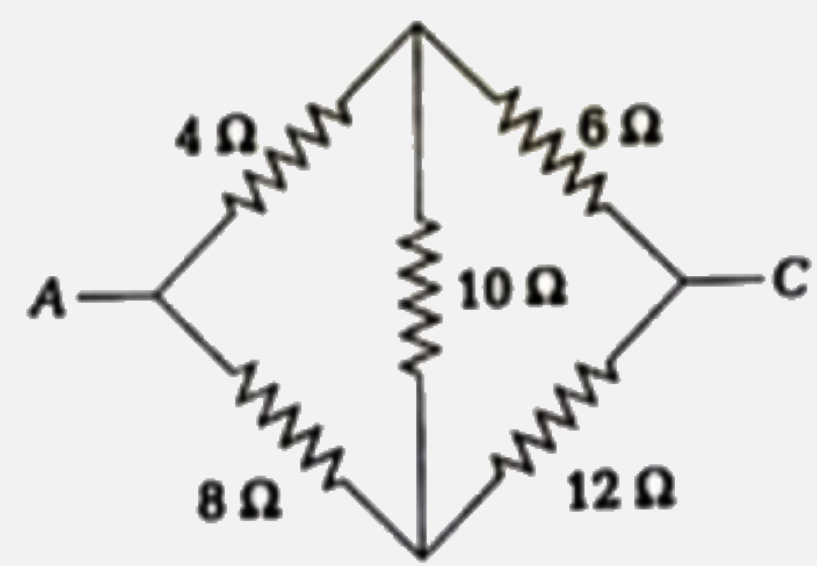 View Solution
View SolutionA number of resistors are connected as shown in the figure. The equivalent resistance between A and B is
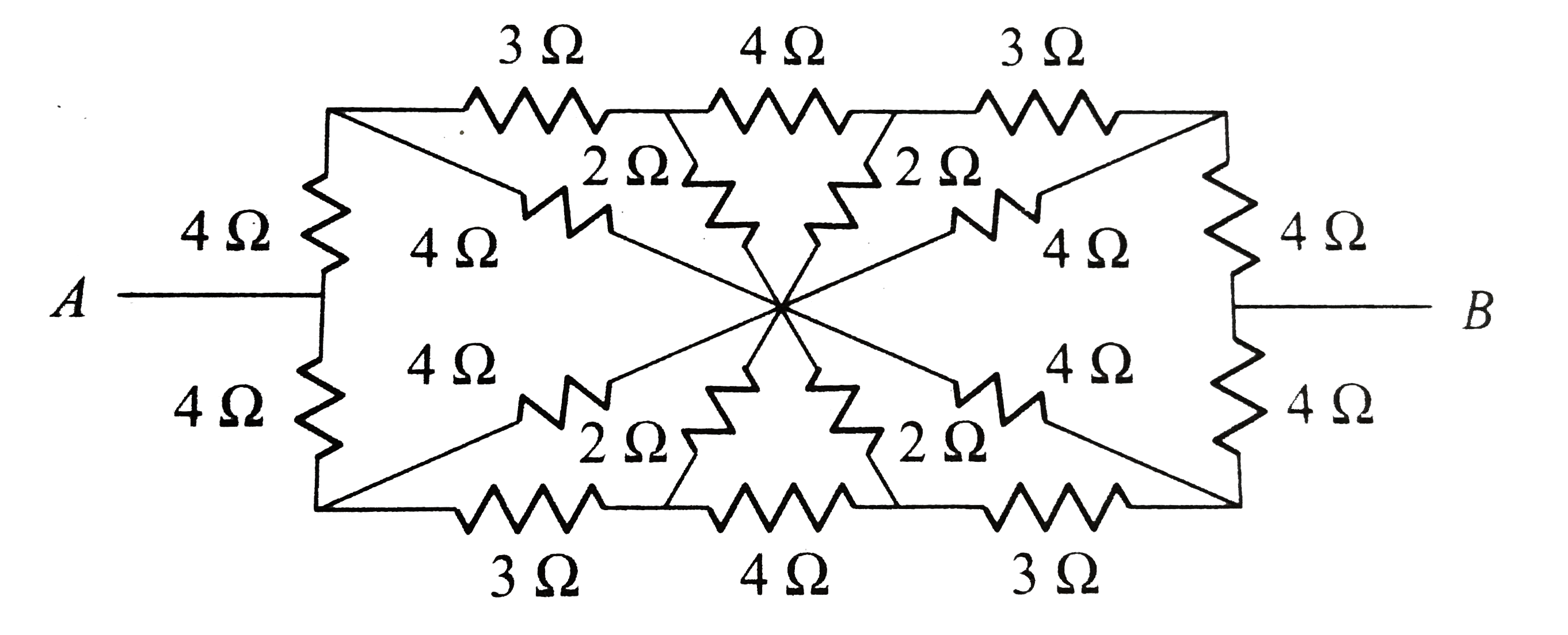 View Solution
View SolutionSix equal resistance,eacch of resistance R are connected as shown in the figure.Equivalent resistance between P and Q is
_PHY_E05_276_Q01.png) View Solution
View SolutionSeven resistance are connected as shown in the firgure. The equivalent resistance between A and B is approximately
 View Solution
View SolutionEight resistances each of resistance 5Ω are connected in the circuit as shown in figure. The equivalent resistance between A and B is
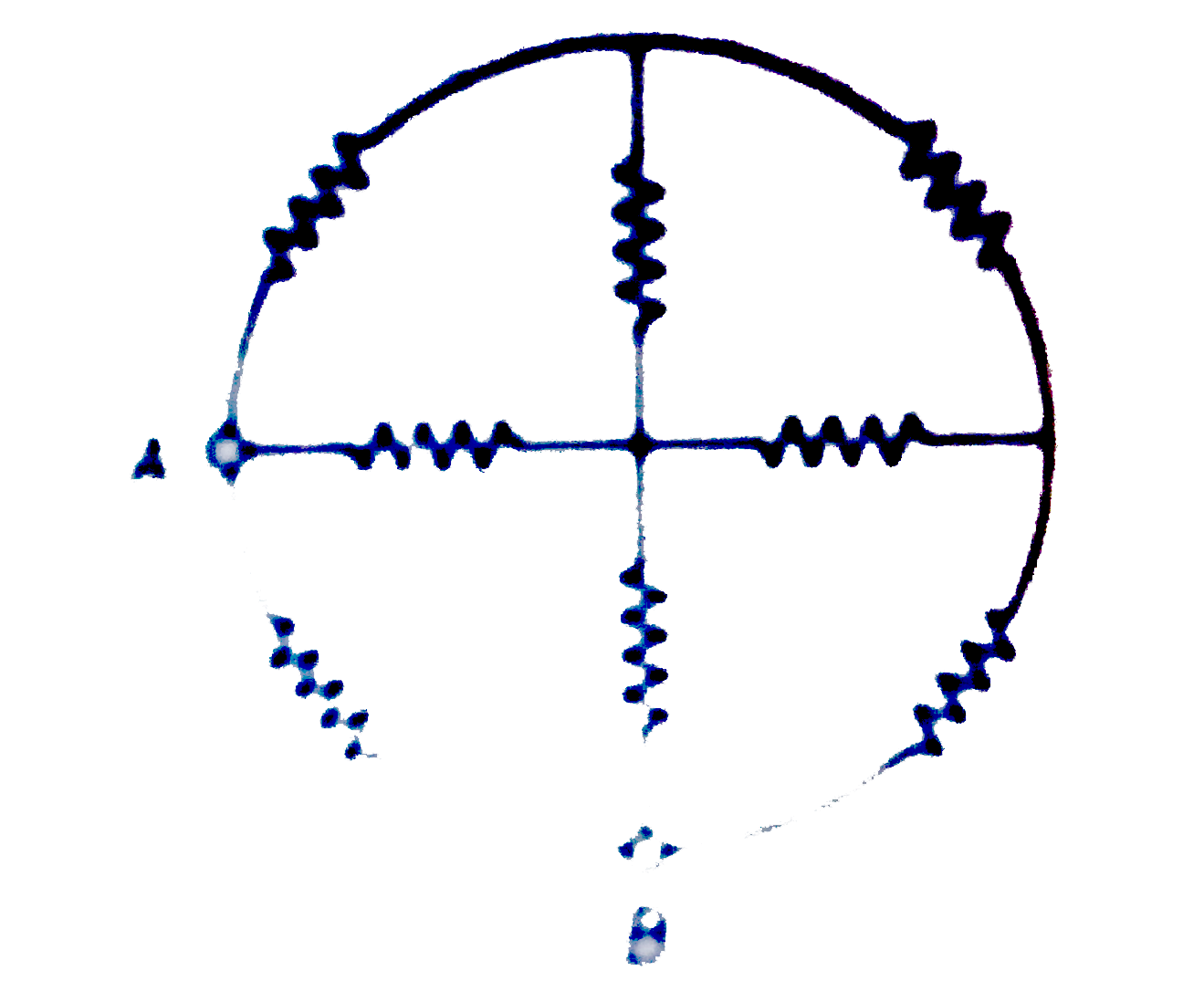 View Solution
View SolutionNine resistors each of resistance R are connected in the circuit as shown in fig. The net resistance between A and B is
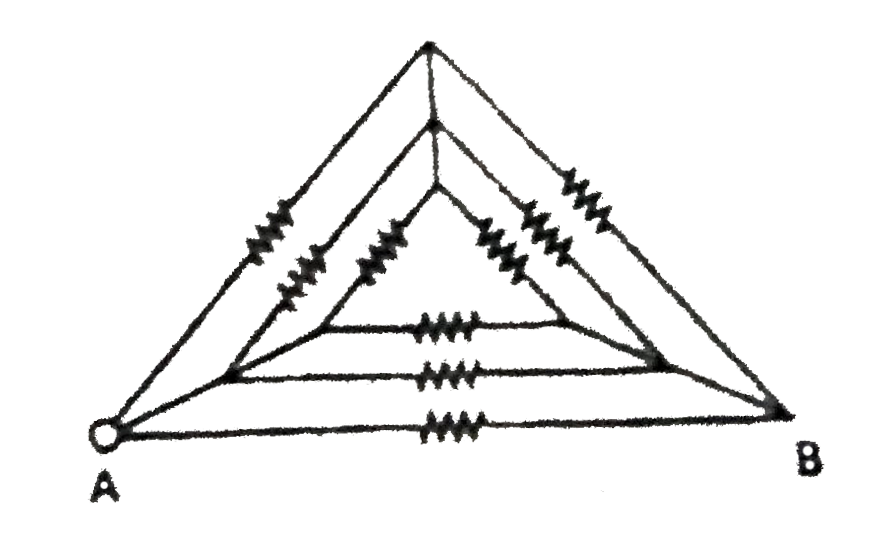 View Solution
View SolutionSix resistors each of resistance R and two resistors each of resistance r are connected in the network shown below. The equivalent resistance between A and B is
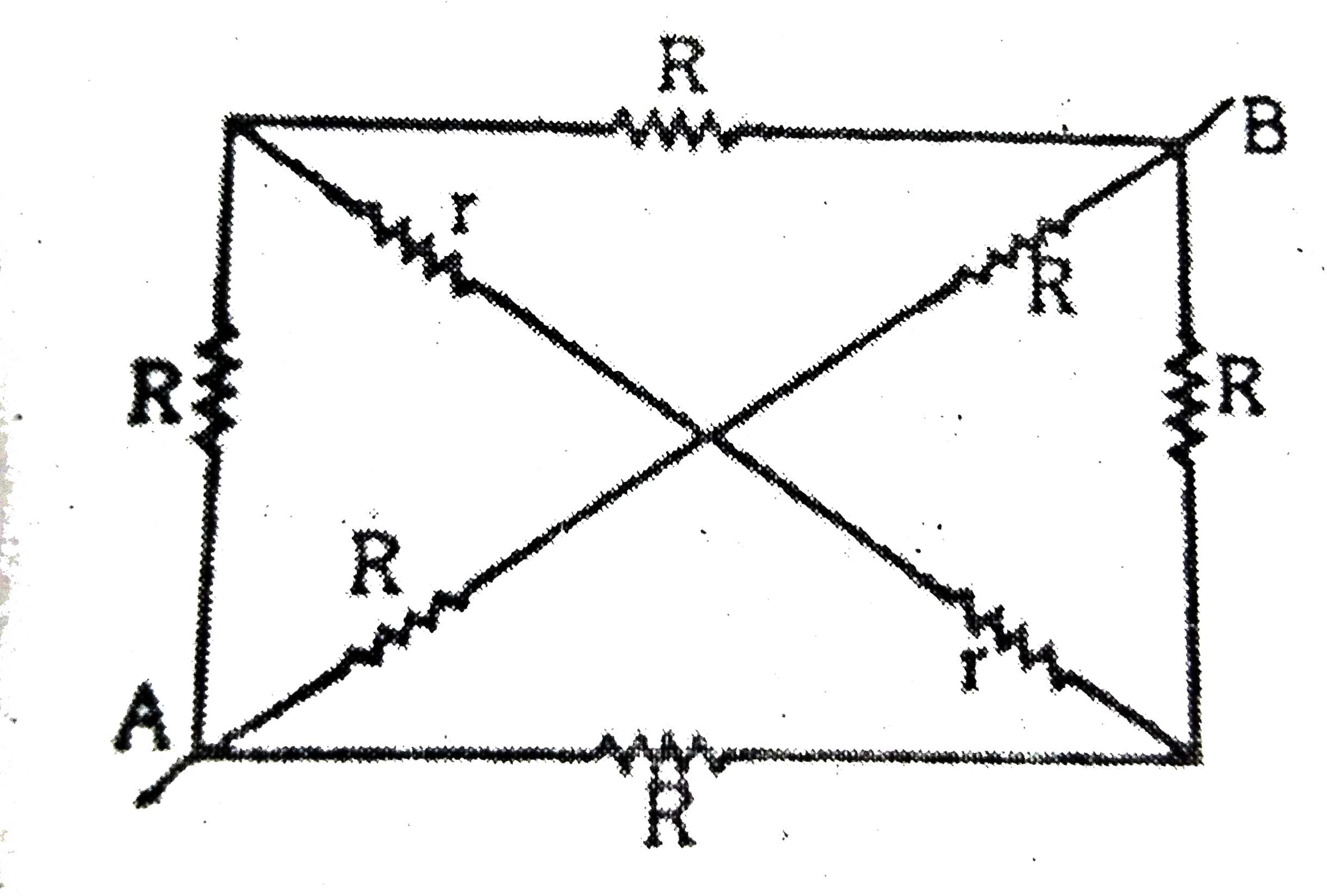 View Solution
View SolutionEach resistance of the circuit shown in figure is r. The equivalent resistance between A and B is
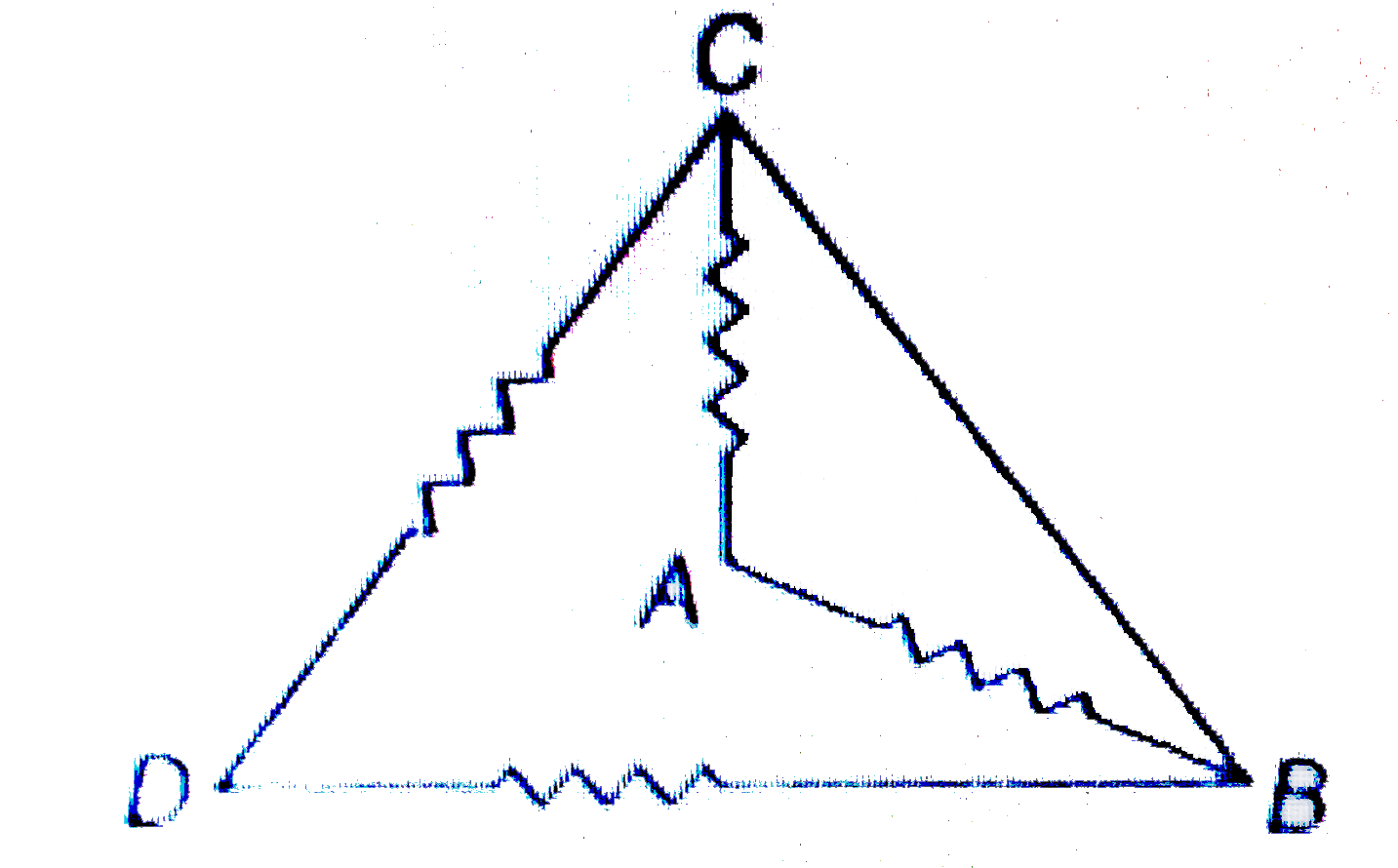 View Solution
View Solution
